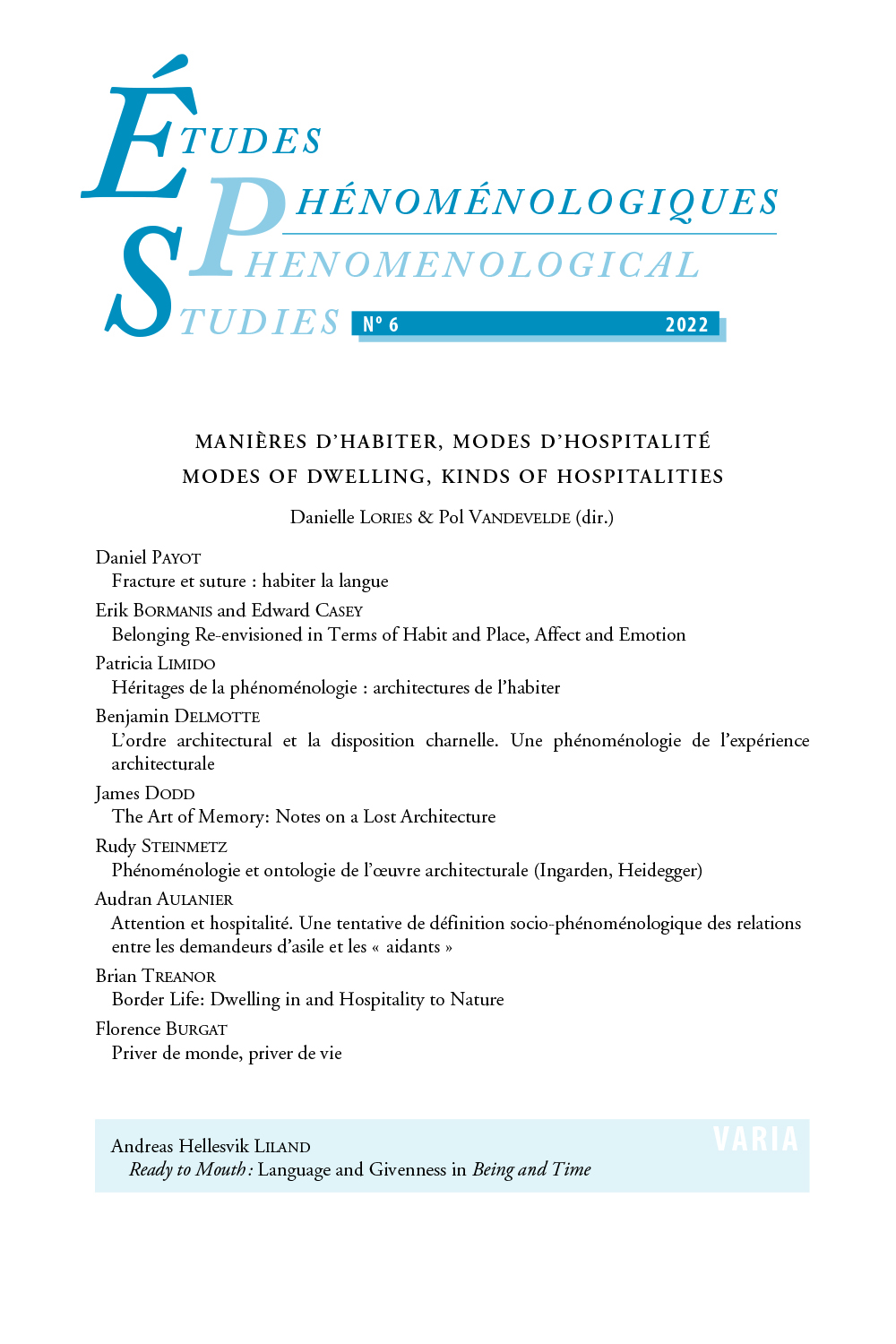 previous article in this issue previous article in this issue |

Preview first page |
Document Details : Title: La dialectique transcendantale d'Edmund Husserl Author(s): DELAMARE, Alexis Journal: Etudes phénoménologiques - Phenomenological Studies Volume: 8 Date: 2024 Pages: 167-194 DOI: 10.2143/EPH.8.0.3292517 Abstract : This paper aims at contributing to a new interpretation of Edmund Husserl’s transcendental idealism. This idealism should not be regarded as a static metaphysical posture, but, rather, as a dynamic of transcendentalization – a transcendental dialectic. According to this interpretation, such dialectic is composed of three phases: an ontological phase, which dogmatically studies the objects in themselves; a phenomenological phase, which investigates the real and intentional components of lived experiences by bracketing any transcendent position; and, finally, a properly transcendental phase, in which the functional coordination of the objects in themselves with their subjective indexes is carried out. An investigation of each of these phases will allow us, in conclusion, to criticize two prejudices that originate in Ingarden’s realistic phenomenological approach and persist in contemporary literature: Husserl’s idealism is neither a subjectivist reductionism – since it does not lose the world – nor an arbitrary metaphysical decision – since it is motivated by concrete ontological and phenomenological investigations. |
 |


